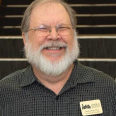
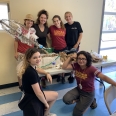
Building Active Stewardship in New Orleans (BASIN) is a program of the Urban Conservancy, a New Orleans-based nonprofit.
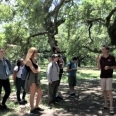
Dr. Phil Bucolo is an aquatic biologist and a visiting assistant professor at Loyola University. He appeared in an article in The New Orleans Advocate about an acidic lake atop a gypsum pile in Convent, LA. The article is titled "Risk falling for potential environmental disaster from slipping waste pile, Mosaic officials say" by David Mitchell. In the article, Dr. Bucolo gave insight into how high acidity levels would impact freshwater plants. Read the full article here.
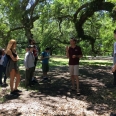
Dr. Chris Schaberg of the Environment Program wrote a collaborative essay with his May-term 2019 "Nature Writing" students. The essay SINKING INTO THE ANTHROPOCENE was just published at Terrain.org. https://www.terrain.org/2019/nonfiction/sinking-into-the-anthropocene/
Dr.Phil Bucolo's "Investigating Nature" course makes a cameo appearance, early on in the piece.
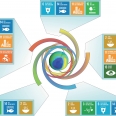
This paper "Ozone depletion, utraviotlet radiation, climate change and prospects for a sustainable future" highlights the findings of the UNEP EEAP panel’s recent quadrennial assessment on the environmental effects of ozone depletion, UV radiation and climate change. We emphasize the beneficial effects that the Montreal Protocol has had, and continues to have, not only for ozone depletion but climate change. June 2019
Click here to view the full article.
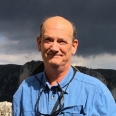
This paper highlights the findings of the UNEP EEAP panel’s recent quadrennial assessment on the environmental effects of ozone depletion, UV radiation and climate change. June 2019

Congratulations to Melody Bigelow-Monssen, who has been awarded a full scholarship to the London School of Economics, for a Master of Science degree in Criminal Justice Policy. Melody graduated in May 2019 with a BA in Philosophy, Politics, and Social Justice, and a BA in Criminal Justice.
Kissing bugs, which feed on vertebrate blood, are thought to have evolved from the so-called assassin bugs. The assassin bugs feed on and kill other bugs. Dr. Dorn is a contributing author of a recent article testing if kissing bugs can still survive feeding only on other bugs (specifically the hemolymph, the equivalent of blood in insects). Surprisingly, one of three species tested, the largest in the U.S.
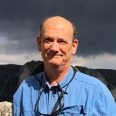
Drs. Donat-P. Häder and Paul W. Barnes coauthored an article on “Comparing the impacts of climate change on the responses and linkages between terrestrial and aquatic ecosystems” May 2019
To read the full article, click here.
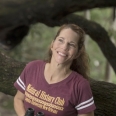
Dr. Thomas has surpassed what it means to teach with excellence. In the classroom, she strives to provide students with content in a manner that is both engaging and easy to understand. She has pioneered many courses, including BioInquiry and Foundations of Environmental Science that include curriculums designed to adequately prepare first-year students with the skills essential to a career in science.
